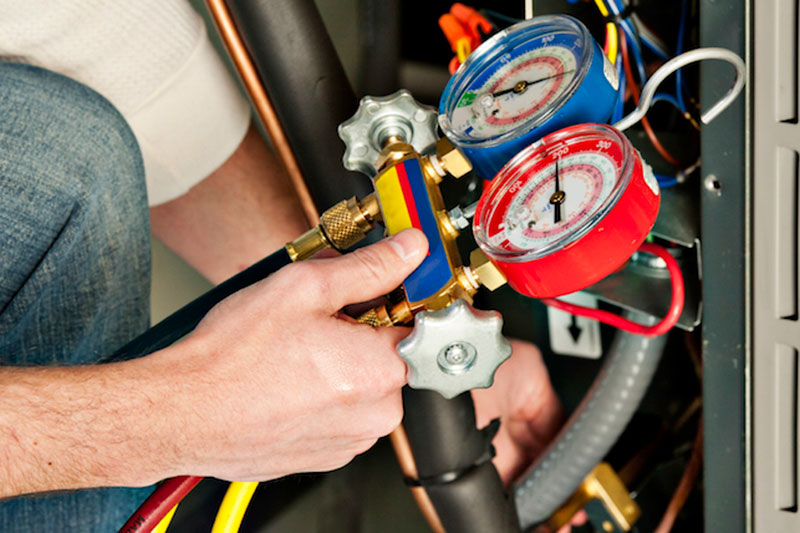
You might not think a lot about how your air conditioner works, but it requires refrigerant to keep your house cool. This refrigerant is subject to environmental rules, since it contains chemicals.
Based on when your air conditioner was installed, it may use R-22, R-410A or R-32 refrigerant. We’ll review the differences and which air conditioner refrigerants are being phased out in Seymour, in addition to how these phaseouts have on influence on you.
What’s R-22 and Why Is It Phased Out?
If your air conditioner was added before 2010, it possibly has Freon®. You can discover if your air conditioner contains it by calling us at 920-833-7967. You can also look at the name plate on your air conditioner condenser, which is situated outside your house. This sticker will have info on what kind of refrigerant your AC uses.
Freon, which is also known as R-22, contains chlorine. Scientists consider R-22 to be damaging to the earth’s ozone layer and one that prompts global warming. The Environmental Protection Agency, which manages refrigerants in the United States, barred its creation and import in January 2020.
Should I Replace My R-22 Air Conditioner?
It differs. If your air conditioning is cooling as designed, you can continue to keep it. With regular air conditioner maintenance, you can expect your AC to last around 15–20 years. However, the Department of Energy reports that replacing a 10-year-old air conditioner could save you 20–40% on yearly cooling expenses!
If you don’t replace your air conditioner, it might cause difficulties if you need air conditioning repair later on, specifically for refrigerant. Repairs may be higher-priced, because only limited quantities of recycled and reclaimed R-22 is accessible.
With the discontinuation of R-22, most new air conditioners now rely on Puron®. Also called R-410A, this refrigerant was developed to keep the ozone layer healthy. As it calls for a varying pressure level, it doesn’t work with air conditioners that use R-22 for cooling.
However, Puron still has the possibility to create global warming. As a consequence, it might also ultimately be discontinued. Although it hasn’t been communicated yet for residential air conditioners, it’s anticipated sometime this decade.
What Refrigerant Will Take Over R-410A?
In preparation of the phaseout, some manufacturers have begun using R-32 in new air conditioners. This refrigerant ranks low for global warming possibility—approximately one-third less than R-410A. And it also reduces energy consumption by about 10%, according to the Intergovernmental Panel on Climate Change’s Fourth Assessment Report. That’s savings that may be passed on to you through your energy costs.
Diedrick's Heating and Air Conditioning Can Assist with All Your Air Conditioning Needs
In brief, the modifications to air conditioner refrigerant probably won’t affect you very much until you have to have repairs. But as we went over beforehand, refrigerant-related repairs may be pricier because of the low amounts available.
Not to mention, your air conditioner frequently malfunctions at the worst time, typically on the hottest day when we’re receiving lots of other appointments for AC repair.
If your air conditioner requires an outdated refrigerant or is aging, we suggest installing a new, energy-efficient air conditioner. This ensures a stress-free summer and can even reduce your electrical expenses, especially if you get an ENERGY STAR®-rated system. Plus, Diedrick's Heating and Air Conditioning provides many financing programs to make your new air conditioner fit your budget. Contact us at 920-833-7967 to start right away with a free estimate.
